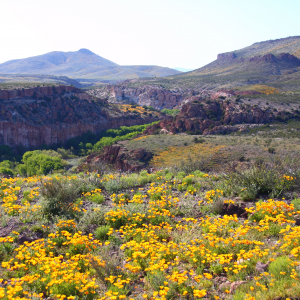
Feb. 10, 2021
New legislation making its way through the Roundhouse is providing New Mexico with the opportunity to set national precedent when it comes to how we can create a just economic transition, create high-quality jobs, diversify local economies and protect our frontline communities from the worst impacts of climate change.
The Climate Solutions Act (HB 9) establishes nation-leading carbon pollution reduction targets to benefit current and future generations while ensuring that all New Mexicans will benefit from the jobs and economic growth provided in a clean energy future.
It is no surprise then that the bill has the support of a strong, diverse coalition spanning community-based, environmental, agricultural and labor organizations. Representatives Angelica Rubio and Melanie Stansbury, and Rep. Nathan Small, as well as House Speaker Brian Egolf as well as Senate President Pro Tem Mimi Stewart and Senators Benny Shendo and Carrie Hamblen are sponsoring the bill and championing strong action.
Here’s why this bill is so critical
- HB9 promotes environmentally conscious and resilient economic development – resulting in the creation of high-quality jobs for everyday New Mexicans. It seeks to diversify the state’s economy and strengthen its resilience by adding sustainable jobs and a new tax base that lessens the state’s dependence on revenues from extractive industries.
- The bill ensures that historically disadvantaged and most impacted communities have a seat at the table in implementing a more diversified and resilient economy as we move to a net-zero carbon future. The New Mexico Climate Solutions Act sets the foundation for the bold, long-term work New Mexico will undertake to make sure communities across the state are included in the new, resilient economic growth. It makes sure no community is left behind during our state’s transformation into a stronger and healthier New Mexico.
- The New Mexico Climate Solutions Act codifies, expands and makes durable Governor Michelle Lujan Grisham’s climate leadership, setting in statute a goal of 50% reduction in greenhouse gas emissions from 2005 levels by 2030 and net-zero emissions by 2050. And it directs the New Mexico Environment Department to implement regulations that will ensure the reduction goals are met and New Mexico is protected from the worst impacts of a warming climate. The bill also directs the state to prioritize reductions in disproportionately affected communities.
And the time to act is now
New Mexicans are already experiencing severe impacts of climate change – harming our health, air, land, water, and economy. Scientists, NASA, and the Department of Defense all agree that climate change is a threat to our kids’ future, and we can no longer ignore the increasingly strange and severe weather.
In southeastern New Mexico, farmers saw temperatures that averaged seven degrees above normal in July 2020. In Santa Fe, a wildfire charred five square miles on the outskirts of town and darkened skies for weeks. And currently, 99% of the state is experiencing severe drought, as state officials grapple with plans to ensure critical water supply for cities, farmers, ranchers and more.
These grueling conditions put even more strain on historically disadvantaged communities already reeling from the impacts of the COVID-19 pandemic and lack of local economic diversification. For communities that already lack access to clean running water for drinking and washing and whose elders are especially vulnerable to rising temperatures, climate change presents a public health emergency. Without strong action to curb climate-warming emissions, the state could see twice as many dangerous heat days and a 70% increase in drought severity.
Join us in supporting this critical legislation and help grow and diversify an economy shaped for and by hardworking families, lift up and protect our frontline communities and create a safer, more stable future for the next generation of New Mexicans.
Jon Goldstein is the director of regulatory & legislative affairs for the Environmental Defense Fund, James Povijua is policy director for Center for Civic Policy, and James Jimenez is executive director for New Mexico Voices for Children.
